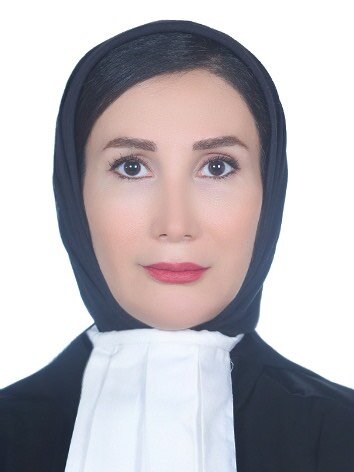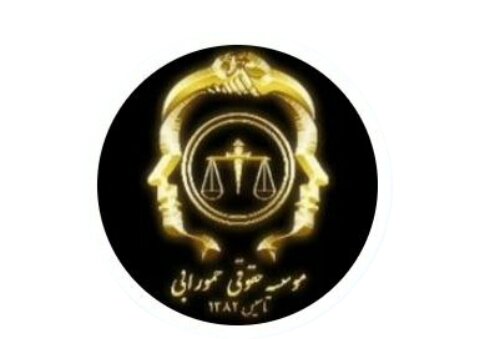Best Transportation Lawyers in Tehran
Share your needs with us, get contacted by law firms.
Free. Takes 2 min.
List of the best lawyers in Tehran, Iran
About Transportation Law in Tehran, Iran
Tehran, the bustling capital of Iran, is characterized by its complex and vast transportation network. This includes numerous forms of transport such as buses, taxis, private vehicles, metro systems, and more recently, ridesharing services. As the city continues to grow, so does the complexity of its transportation systems, making the legal landscape equally intricate. Transportation law encompasses the regulations and legal frameworks that govern these various modes of transport, addressing issues such as traffic rules, vehicle registration, public transport policies, and environmental impact regulations. Navigating these laws effectively requires an understanding of national standards as well as local bylaws that specifically pertain to Tehran.
Why You May Need a Lawyer
There are numerous situations where individuals or businesses may need to consult a transportation lawyer in Tehran. Common reasons include: - Disputes related to traffic violations or accidents, where determining liability can be complex. - Legal challenges in adhering to local transportation regulations for businesses in logistics, freight, or public transportation sectors. - Issues surrounding the registration and legal operation of vehicles, both personal and commercial. - Navigating the legal aspects of new transportation technology or services, such as ride-sharing platforms or electric scooters. - Resolving insurance claims that involve transportation incidents. In these scenarios, a lawyer can provide essential guidance to ensure compliance with the law and to protect individuals’ and companies’ rights.
Local Laws Overview
Key aspects of the transportation laws in Tehran include: - Traffic Regulations: These define the permissible speed limits, road safety measures, and penalties for violations such as driving under the influence, speeding, and illegal parking. - Vehicle Registration: All vehicles must be registered with national authorities, and the process involves inspections for safety and compliance with emission standards. - Public Transport Policies: Laws governing the operation of buses, taxis, and the metro system, including licensing requirements for operators. - Environmental Regulations: Emission standards and laws aimed at reducing pollution from vehicles, with penalties established for violators. - Property and Transport Development: Legal procedures for land allocation for new transport infrastructures like railway lines and highways exist to ensure planned development.
Frequently Asked Questions
What are the penalties for driving under the influence in Tehran?
Driving under the influence of alcohol or drugs is strictly prohibited in Tehran and can result in severe penalties, including fines, suspension of driving licenses, or even imprisonment.
How are traffic violations handled in Tehran?
Traffic violations are monitored by traffic police, and fines are issued according to the severity of the offense. There is an appeal process available for those who believe they have been wrongfully cited.
What is required to register a vehicle in Tehran?
Vehicle registration in Tehran requires documentation such as proof of ownership, a valid driver’s license, and inspection certificates. There are also fees for registration based on vehicle type.
Are there special laws for commercial vehicles?
Yes, commercial vehicles such as trucks and buses have additional regulations around size, capacity, and operation routes. These are strictly enforced to ensure public safety.
How do I address a public transportation complaint?
Complaints regarding public transportation services can be directed to the Tehran Municipality's transport department, which investigates service-related issues and takes appropriate action.
What should I do if I am involved in a traffic accident?
In the event of a traffic accident, it is crucial to stay calm, exchange details with the involved parties, document the scene if possible, and report the incident to the police. Seeking legal counsel is also recommended.
How does the metro system in Tehran operate legally?
The Tehran Metro operates under strict regulations governing safety, passenger capacity, and service schedules. These laws aim to ensure reliable and safe transportation for commuters.
What laws apply to ridesharing services?
Ridesharing services must comply with local transport regulations, including driver licensing, vehicle safety standards, and fare structures set by authorities.
Are there specific environmental regulations for vehicles?
Yes, the government has enacted strict environmental laws to control vehicle emissions, requiring regular inspections and certifications to ensure compliance.
Can I import a vehicle to Tehran, and what are the legal requirements?
Importing a vehicle involves clearing customs, paying all applicable duties and taxes, and meeting emission and safety standards. It is advisable to consult a legal expert to navigate this process.
Additional Resources
For more information, consider reaching out to the following: - Tehran Municipality’s Transport Department for local transportation guidance and complaints. - Iran Traffic Police for regulations and traffic law enforcement. - Ministry of Roads & Urban Development for policies on urban development and infrastructure. - Environmental Protection Organization for standards related to vehicle emissions.
Next Steps
If you require legal assistance in transportation matters, consider taking the following steps: - Consultation: Seek an initial consultation with a lawyer specializing in transportation law to understand your specific legal needs. - Document Preparation: Gather all relevant documents and evidence related to your case or inquiry. - Legal Representation: Retain a lawyer who can represent you effectively in negotiations or legal proceedings. - Follow-up: Stay actively involved in the process by maintaining communication with your legal counsel and being informed about the progress of your case. Remember, having knowledgeable legal assistance can be crucial in navigating the complexities of transportation laws in Tehran.
Lawzana helps you find the best lawyers and law firms in Tehran through a curated and pre-screened list of qualified legal professionals. Our platform offers rankings and detailed profiles of attorneys and law firms, allowing you to compare based on practice areas, including Transportation, experience, and client feedback.
Each profile includes a description of the firm's areas of practice, client reviews, team members and partners, year of establishment, spoken languages, office locations, contact information, social media presence, and any published articles or resources. Most firms on our platform speak English and are experienced in both local and international legal matters.
Get a quote from top-rated law firms in Tehran, Iran — quickly, securely, and without unnecessary hassle.
Disclaimer:
The information provided on this page is for general informational purposes only and does not constitute legal advice. While we strive to ensure the accuracy and relevance of the content, legal information may change over time, and interpretations of the law can vary. You should always consult with a qualified legal professional for advice specific to your situation.
We disclaim all liability for actions taken or not taken based on the content of this page. If you believe any information is incorrect or outdated, please contact us, and we will review and update it where appropriate.

















